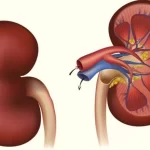What is Alzheimer’s disease?
Alzheimer’s disease is a neurological condition. it’s characterized by cognitive decline and amnesia thanks to the death of brain cells. The disease becomes mild and gets progressively worse. Alzheimer’s disease may be a quite common sort of dementia. Alzheimer’s disease can’t be cured, but treatment can help reduce Alzheimer’s symptoms.
Alzheimer’s disease
Alzheimer’s disease occurs when brain cells start dying. the dimensions of the brain decrease to an excellent extent. There are only a few connections and nerve cells within the brain tissue. A postmortem/autopsy may only show small inclusions inside the neural tissues. this is often called tangles and plaques. Plaques are formed thanks to the formation of a substance called beta-amyloid (amyloid plaque).
The tangles of brain neurons are formed thanks to the dissolution of a protein called tau. consistent with the researchers, Alzheimer’s disease goes way beyond protein abnormalities. Alzheimer’s disease makes it difficult to acknowledge faces and objects. the foremost prominent signs include problem solving, decisions, and reasoning. A sort of dementia called vascular dementia is caused by a traumatic event like a stroke, the foremost common sort of dementia after Alzheimer’s disease.
Symptoms of Alzheimer’s disease
- Forgetfulness.
- Difficulty in language, including difficulty remembering names.
- Trouble planning and problem-solving.
- Trouble performing previously familiar tasks.
- Difficulty in concentration.
- Trouble remembering spatial relationships like roads and particular routes to the destination.
- Problems with social behavior.
Stages of Alzheimer’s disease
Primary
Alzheimer’s disease thanks to dementia or moderate cognitive disorder (MCI) or moderate neurocognitive disorder: The disease is characterized by the extent of cognitive decline. during this disease, the necessity for compensatory strategies and reconciliation helps to stay the activities of lifestyle independent.
Moderate Alzheimer’s dementia
Moderate Alzheimer’s dementia or major moderate neurocognitive disorder thanks to Alzheimers disease
The disease is characterized by symptoms of activities that disrupt lifestyle. The patient requires supervision in performing complex tasks like financial management.
Severe Alzheimer’s dementia
Severe Alzheimer’s dementia or major neurocognitive disorder thanks to Alzheimers disease
This disorder is characterized by symptoms of severely disrupted activities of lifestyle. In this, the patient is hooked into others to satisfy basic needs.
The patient with severe dementia may have an inability to steer, talk and lookout of themselves. they have caregivers’ shelter for his or her basic needs like eating, washing clothes and accessing toilets. they’ll even have trouble choosing the proper words to speak, like speaking the names of objects or expressing themselves.
Causes of Alzheimer’s disease
Scientists haven’t yet understood the precise explanation for Alzheimers disease. The multi-faceted causes of affected by this disease are considered to be indisputable, such as:
Genetic
Alzheimer’s disease includes the apolipoprotein E (APIE) gene. There are several variants of this gene. one among them is APIE ε४, which is found during a person to develop the danger of the disease. However, having this APIE ε४ gene doesn’t imply that an individual may develop Alzheimers disease. Some individuals don’t have APIE ε४ genes, but they develop the disease. Most experts believe that additional genes like penicillin 1, changes in chromosome 14, APP (amyloid precursor protein) alteration of chromosome 21, and penicillin 2, changes in chromosome 1, can affect the event of Alzheimer’s. Scientists round the world are checking out other genes that increase the danger of developing Alzheimers disease.
Lifestyle factor
With Alzheimers disease, diseases like a heart condition, stroke, hypertension, diabetes, obesity, and hyperlipidemia could also be associated.
Diagnosis of Alzheimer’s disease
Early and proper diagnosis is extremely important for several reasons. It is often told to folks that their symptoms are caused by Alzheimers disease or other diseases like stroke, tumor, paralysis agitans, sleep disturbances, side effects of medicine or other conditions, then the disease is restricted and possibly are often treated. This fact also helps them in planning future family, living arrangements and developing collaborative networks. Besides, early disease detection may provide more opportunities for people to be included in clinical trials. However, definite knowledge of Alzheimers disease occurs only after death.
Usually, the doctor can know the disease information with the assistance of:
- Past medical record and current health status.
- Changes within the patient’s personality and behavior.
- Memory, problem-solving and language speaking are often seen in cognitive tests.
- Standard medical tests like blood and urine tests and other tests are adopted to deal with the causes of the disease.
- Brain scans include CT / MRI scans.
Management
There is no treatment available for Alzheimer’s disease; however, relief is often provided to support the symptoms of this disease. Current treatments are often divided into medical, psychosocial, and care.
Treatment of Alzheimer’s disease
Cholinesterase inhibitors — acetylcholine, is a chemical that keeps neural signals charged and helps the message system within brain cells.
Different types of medicine are wont to treat Alzheimer’s:
- Donepageil
- Revisingmin
Galantamine
- These drugs are utilized in the treatment of mild to moderate Alzheimers disease.
- NMDA receptor blocker.
- Meantime chemicals are often used for moderate Alzheimers disease also as severe Alzheimers disease.
Psychosocial
Psychosocial intervention is employed for combined pharmacological treatment. It is often classified into collaborative, cognitive and behavioral approaches.
Care
A patient with Alzheimer’s might not be fully treated. an individual affected by this disease is gradually made unable to satisfy his needs. Thus, compulsory care is that the treatment and through this, the duration of the disease are often managed carefully.
Prevention of Alzheimer’s disease
There is no definite effective solution for the prevention of this disease, which may help in preventing disease.
However, certain steps are often adopted to avoid this disease, which may help within the delayed onset of dementia. Through these measures, the patient can remain mentally healthy.
- Reading.
- Write for pleasure.
- playing musical instruments.
- Participation in course courses.
- playing sports.
- Swimming.
- Group games like bowling.
- to roam around.
- And participate in other recreational activities.





